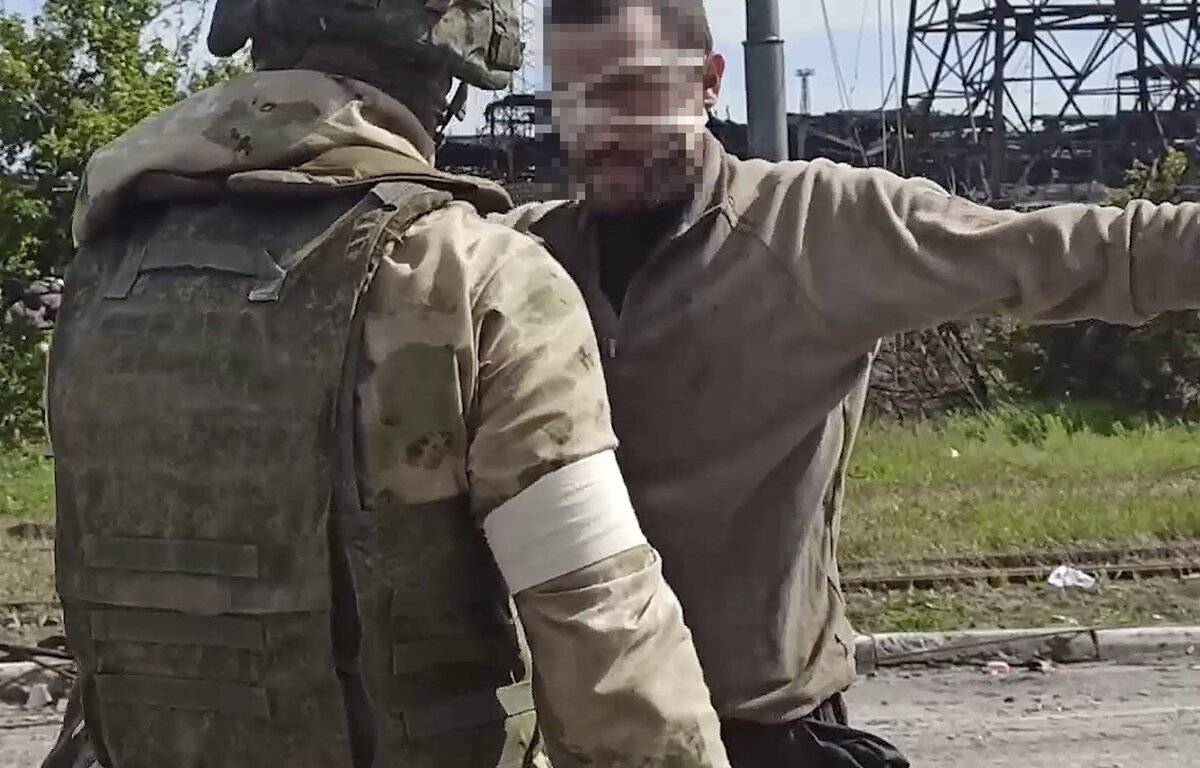“Ukrainian prisoners of war do not deserve to live”. This sentence is that of Leonid Slutski, a Russian deputy, before the Duma, describing these prisoners as “non-humans” and “animals”. In his speech, the MP suggested exchanging these Ukrainians for “a sufficiently large number of [nos] prisoners of war”, or to show the whole world “that they only deserve the death penalty”.
This Thursday, the Russian Ministry of Defense announced that 1,730 Ukrainian soldiers entrenched on the steel site of Azovstal, in Mariupol, have surrendered since Monday. However, the treatment of prisoners in time of war is a difficult case for all parties. Exchange currency or objects of propaganda, they have a status defined by the Geneva Convention, which is supposed to protect them. What is she saying ? We will explain everything to you.
Very protected prisoners… in theory
The Geneva Convention relative to the treatment of prisoners of war is one of the four conventions signed in 1949, at the end of the Second World War. It applies to all parties to an armed conflict, even without an official declaration of war. This convention is not intended to regulate the conflict itself but to protect those who do not take a direct part in the hostilities. According to the website of the United Nations High Commissioner for Human Rights, this includes “members of the armed forces who have laid down their arms and persons who have been disabled by illness, injury, detention, or any other cause”.
The military are not the only ones to benefit from this status, since the convention adds to it “members of militias and volunteer corps forming part of these armed forces”, as well as “persons who follow the armed forces without directly part”, citing for example civilian members of military aircraft crews, war correspondents, suppliers or members of services responsible for the welfare of the military.
Civilians can also claim status according to the texts: “the population of an unoccupied territory which, on the approach of the enemy, spontaneously takes up arms to fight the invading troops”.
“Treated with humanity at all times”
According to the Geneva Convention, the status of prisoner of war grants rights to detainees, but also duties to the detaining power which “is responsible for the treatment applied to them”.
Article 13 of the Convention states that “Prisoners of war must at all times be treated humanely”: “Any unlawful act or omission on the part of the Detaining Power resulting in the death or seriously endangering the health of a prisoner of war in his power is prohibited and will be considered a grave breach of this Convention. »
The article adds that “prisoners of war must likewise be protected at all times, in particular against any act of violence or intimidation, against insults and public curiosity. Retaliation against them is prohibited. “An idea pursued by the beginning of article 14, which gives the right” in all circumstances to respect for their person and their honor “.
Both parties accused
These parts alone (the charter has 143 articles and annexes) go against the statements of the Russian deputy. Threats of execution echo the prohibited violence and reprisals, and the labels of “non-humans” and “animals” can be qualified as insults and attacks on the honor of Ukrainian prisoners.
Similarly, a video released by the Russian Ministry of Defense, showing the prisoners exiting the Azovstal steelworks, until close-ups of their faces, is tantamount to exposure to public curiosity.
The Russian Federation had nevertheless ratified this Geneva Convention in 1954, as shown the website of the International Committee of the Red Cross. Either the same year as… Ukraine. If the country of Zelensky is attacked in this conflict, it is not exempted from respecting the Geneva Convention. War crime charges have also surfaced against Ukrainian troops, however, such as this video posted on social media showing alleged Ukrainian soldiers shooting Russian prisoners in the legs. Ukrainian authorities have also released numerous photos of Russian prisoners since the start of the invasion.
Future penalties?
Asked by 20 minutes, William Woll, a lawyer specializing in international law, explains the complexity of sanctioning those who do not respect the Convention for prisoners of war: “The perpetrators of these acts are directly concerned by the sanctions before an international criminal tribunal. “For this, it will be necessary to build, around the culprits, a “mesh that we can tighten as much as possible thanks to the testimonies and complaints of the victims and their relatives”, explains the lawyer. Could heads of state, staff or officers also be concerned? ” It’s harder. It would be necessary to succeed in proving that there was a clear order for these misdeeds, or that the person in charge launched a “no quarter”, prohibited by conventions, with his troops. For example, many convictions had been pronounced for failure to respect the rights of prisoners of war for the Ovcara Massacrein Croatia by leaders of the former Yugoslavia in 1991, or during the genocide in Rwanda in 1994.
It remains to be seen whether the two parties will agree to return the prisoners of war to their opponent after the conflict, since the Geneva Convention grants them the right to repatriation.
